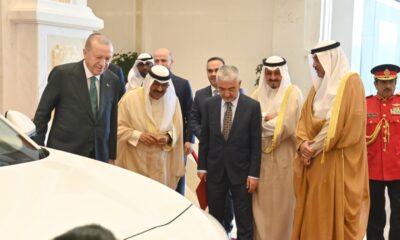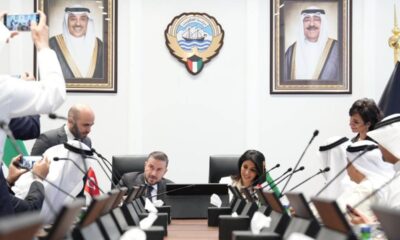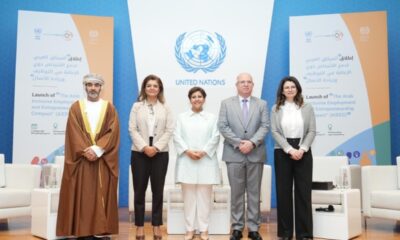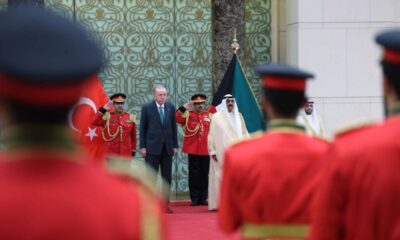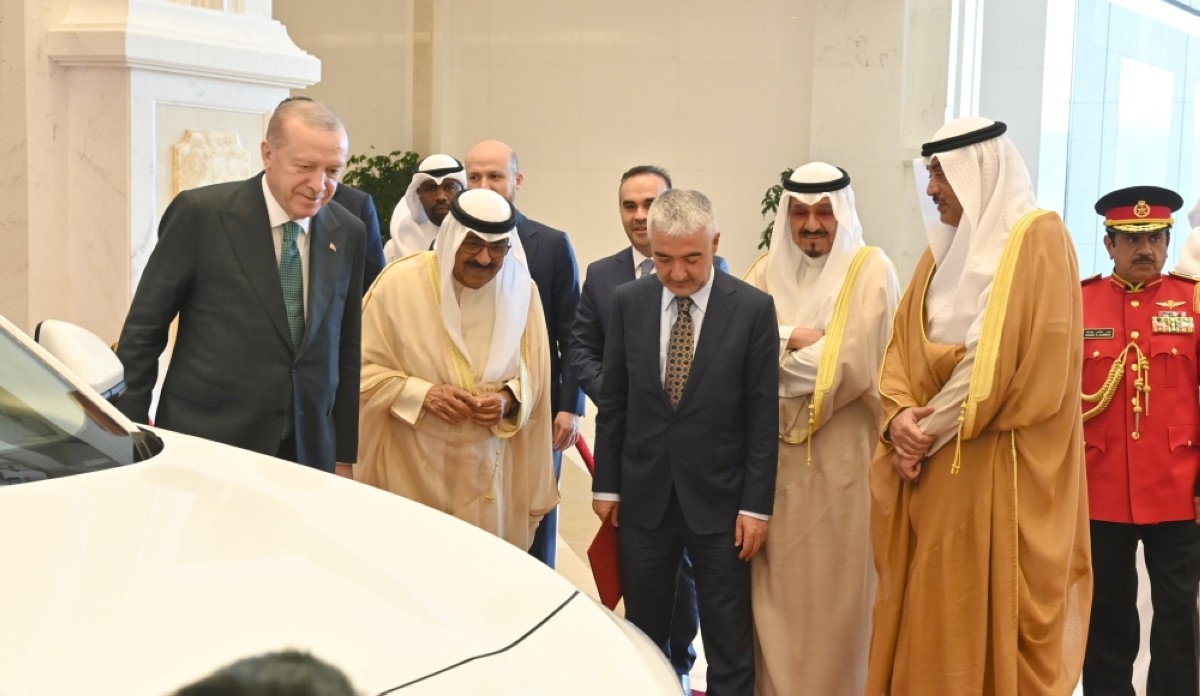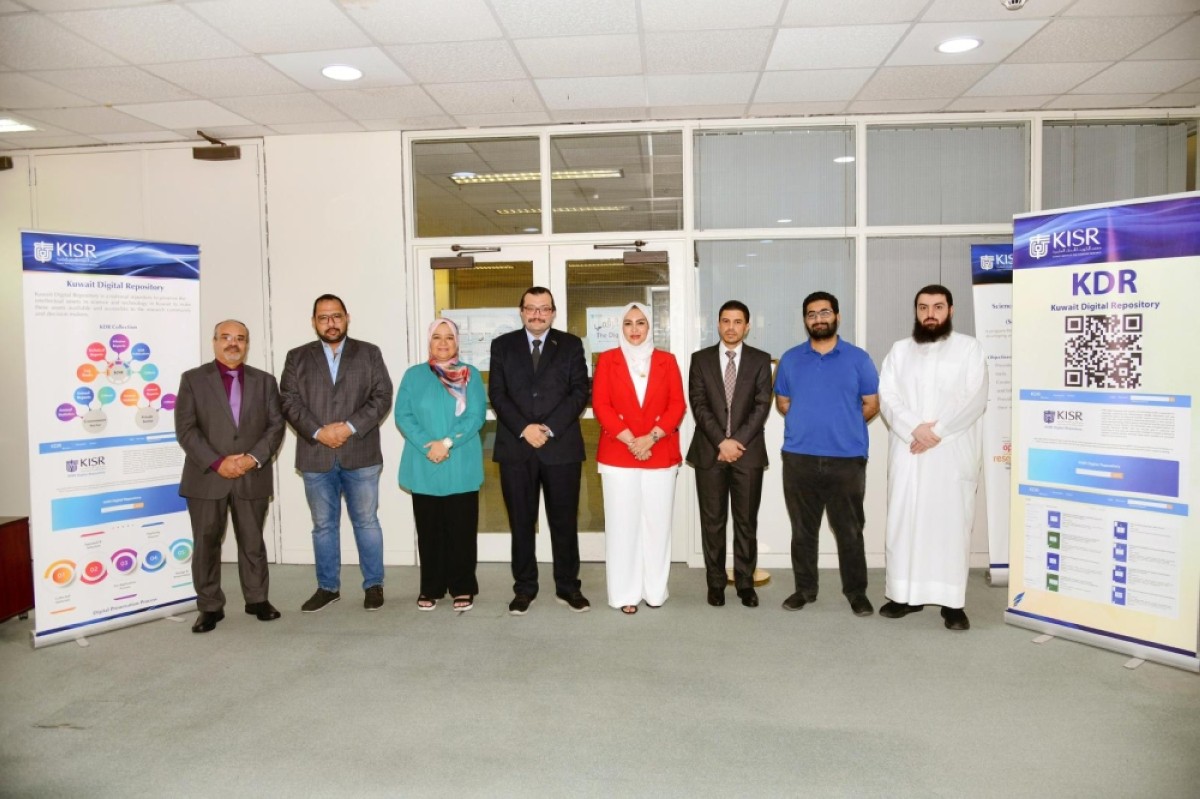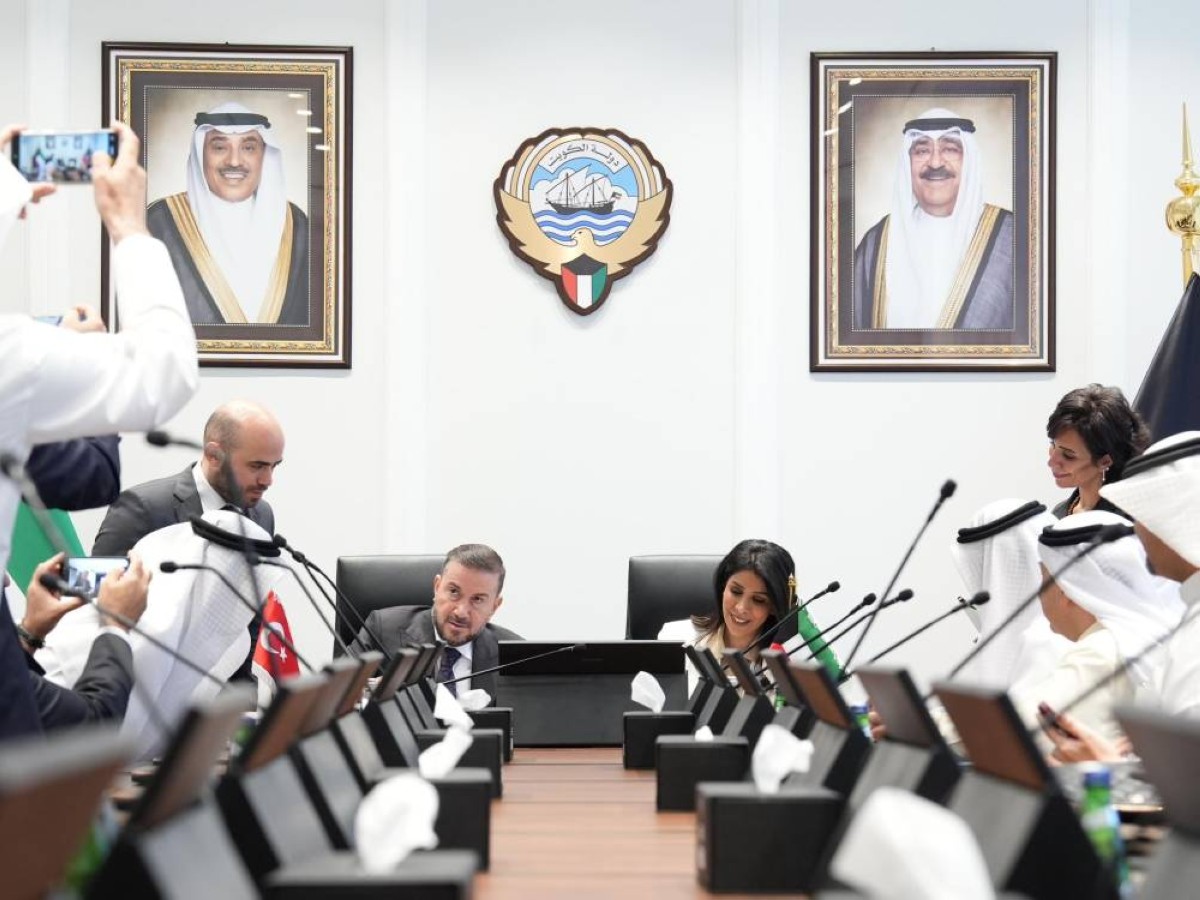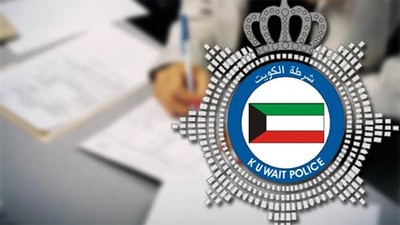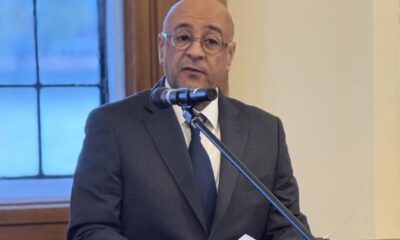KUWAIT: Under the patronage and presence of His Highness the Amir of Kuwait Sheikh Meshal Al-Ahmad Al-Jaber Al-Sabah, a grand ceremony honoring the top graduates of Kuwait University for the academic years 2021–2022 and 2022–2023 was held Wednesday at Al-Dana Theater in Sabah Al-Salem University City. His Highness arrived at the venue to a warm welcome by Minister of Higher Education and Scientific Research Dr Nader Al-Jallal, Kuwait University President Dr Dina Al-Mailem, and senior university officials.
The ceremony was also attended by His Highness the Crown Prince Sheikh Sabah Al-Khaled Al-Hamad Al-Sabah, the Head of the Supreme Judicial Council and Court of Cassation Chief Justice Dr Adel Bouresli, Acting Prime Minister and Minister of Interior Sheikh Fahad Al-Yousef Saud Al-Sabah, and senior state officials. A large audience of families were present to celebrate the graduation of 352 students across bachelor’s, master’s, and doctoral programs.
The event opened with the national anthem and a recitation from the Holy Quran, followed by speeches highlighting the significance of education in Kuwait’s development journey. Speaking at the ceremony, Dr Nader Al-Jallal conveyed his deepest gratitude to His Highness the Amir for his patronage and support. “Your Highness’s presence today reflects our leadership’s steadfast commitment to empowering distinguished students and highlights the vital role of higher education in building our nation’s future.”
A large audience of families and officials attends the graduation ceremony.
Sheikh Meshal poses for a photo with Minister of Higher Education and Scientific Research Dr Nader Al-Jallal and Kuwait University President Dr Dina Al-Mailem, as well as officials and gradates.
Sheikh Meshal speaks with the top graduates.
Sheikh Meshal, Sheikh Sabah Al-Khaled, and Sheikh Fahad Al-Yousef are welcomed by Minister Al-Jallal and Kuwait University President Al-Mailem.
He emphasized that Kuwait’s progress hinges on the efforts of educated young citizens, noting the profound impact of the Amir’s support on the country’s academic and scientific renaissance. “The students’ learning outcomes represent the cornerstone in realizing our national aspirations toward a sustainable knowledge-based economy and a prosperous society rooted in its identity and national values,” he said. Addressing the graduates, Dr Al-Jallal encouraged them to view their achievement as the beginning of a greater journey. He urged them to “carry forward Kuwait’s name with pride and pursue excellence and innovation for the advancement of our beloved homeland.”
In her remarks, Kuwait University President Dr Dina Al-Mailem welcomed His Highness the Amir and the distinguished guests, praising the graduating class’s hard work and dedication. She highlighted recent advancements at Kuwait University, including academic program development, expansion of postgraduate studies, and enhanced focus on research, innovation, and digital transformation. She noted: “The university is steadfast in aligning its programs with international standards and the needs of the job market, while fostering sustainability, quality, and innovation.”
A folk dance troupe performs outside Al-Dana Theater in Sabah Al-Salem University City as part of the graduation ceremony.
Student Adhwa Abdullah Al-Jadae, representing the graduates, addresses the audience at the ceremony.
His Highness the Amir receives a flower bouquet from top student Adhwa Abdullah Al-Jadae.
Dr Al-Mailem also emphasized the university’s commitment to inclusivity by supporting students with special needs, in line with Kuwait’s vision for inclusive education. Reflecting Kuwait’s strategic ambitions, she pointed to the establishment of the Kuwait National Space Research Center, collaborations with international universities, and significant strides in cybersecurity and artificial intelligence initiatives.
Representing the graduates, top graduate Adhwa Abdullah Al-Jadae expressed profound gratitude to His Highness the Amir for attending and supporting the ceremony. “Your presence, Your Highness, is a great honor and a powerful motivation for us to continue giving back to Kuwait with dedication and excellence.” She also paid tribute to professors and parents, recognizing their essential roles in the graduates’ success. The ceremony concluded with His Highness the Amir presenting awards to the top graduates and receiving a commemorative gift in appreciation of his continuous support for education and youth development. — KUNA










